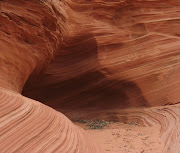 Almost 10,000 cases with 412 confirmed deaths to date plus the spread into neighboring Botswana and South Africa screams bloody murder for a lack of urban public health infrastructure containment and fast action on part of Zimbabwe's inept government. Shades of George Bush in America's dénouement during Katrina, but weirdly juxtaposed against Africa policy being one of his singular net positive achievements.
Almost 10,000 cases with 412 confirmed deaths to date plus the spread into neighboring Botswana and South Africa screams bloody murder for a lack of urban public health infrastructure containment and fast action on part of Zimbabwe's inept government. Shades of George Bush in America's dénouement during Katrina, but weirdly juxtaposed against Africa policy being one of his singular net positive achievements. Hygiene is a matter of life and death while the midst of a crisis is not an opportune time for educating the people. Out of necessity, Zimbabwe's citizenry is getting a crash course along with buckets, soap and water treatment tablets. Don't use the water and that goes double for the cities. Harare, Zimbabwe's capital, remains politically aflame amidst contested election results and a mountain of constitutional amendments meant to secure powers for Mugabe against rival Morgan Tsvangirai. Rural
UN Children's Fund (UNICEF) spokeswoman Veronique Taveau said that unlike previous outbreaks that mainly affected rural areas, the current epidemic is affecting densely-populated urban centres, "which leads to itsrapid expansion and makes it harder to fight against the disease."
Jean-Philippe Chauzy of the International Organization for Migration said Zimbabweans
fleeing deprivation in their country were contributing to spreading the disease.
Zimbabwe belatedly changed its tune Thursday and asked for international help to fight the outbreak after long insisting that the
situation was under control.
"With the coming of the rainy season, the situation could get worse," said deputy health minister Edwin Muguti. "Our problems are quite simple. We need to be helped."With a belated invite, the International Committee of the Red Cross and a plethora of United Nations agencies are
 rushing to put their fingers in the dikes as hordes collapse in a dam of humanity. People providing care to victims are starving and others are spreading the disease crossing the borders into neighboring nations. Inflation was so bad Zimbabwe's bankrupt treasury had to issue a 10,000,000,000 bill as prices for bread, gas and clean bottled water went up hourly. Day to day survival left little time for the niceties of proper hygiene in the middle of the slums or in rural areas where supply chains are figments of imagination. Yet, Zimbabwe is a bountiful country blessed with a Mosi-oa-Tunya UNESCO designation since the late 1980s for Victoria Falls which should facilitate tourism that would make a less corrupt government solvent under competent leadership.
rushing to put their fingers in the dikes as hordes collapse in a dam of humanity. People providing care to victims are starving and others are spreading the disease crossing the borders into neighboring nations. Inflation was so bad Zimbabwe's bankrupt treasury had to issue a 10,000,000,000 bill as prices for bread, gas and clean bottled water went up hourly. Day to day survival left little time for the niceties of proper hygiene in the middle of the slums or in rural areas where supply chains are figments of imagination. Yet, Zimbabwe is a bountiful country blessed with a Mosi-oa-Tunya UNESCO designation since the late 1980s for Victoria Falls which should facilitate tourism that would make a less corrupt government solvent under competent leadership. "Some of the staff workingin the clinics have not received a salary for weeks, and they cannot keep working if we do not get them food," ICRC spokeswoman Anna Schaaf said.
The agency said on
Thursday it was doubling the budget of its Zimbabwe office to nearly 13 million Swiss francs ($11 million) in 2009. "The situation in hospitals is catastrophic," ICRC President Jakob Kellenberger told Reuters.
Zimbabwe's inflation is more than 230 million percent. Its economic crisis has caused many public hospitals to close, and most towns suffer from only intermittent water supplies, broken sewers, and uncollected garbage.

A story with heart that goes deep inside the cultural mores and restrictions that form life in Zimbabwe as told by a journalist with skin in the game, Love in the Driest Season: A Family Memoir. Newlywed white man with African American wife gets a detailed education in African politics as told in autobiographical format from Neely Tucker.











No comments:
Post a Comment